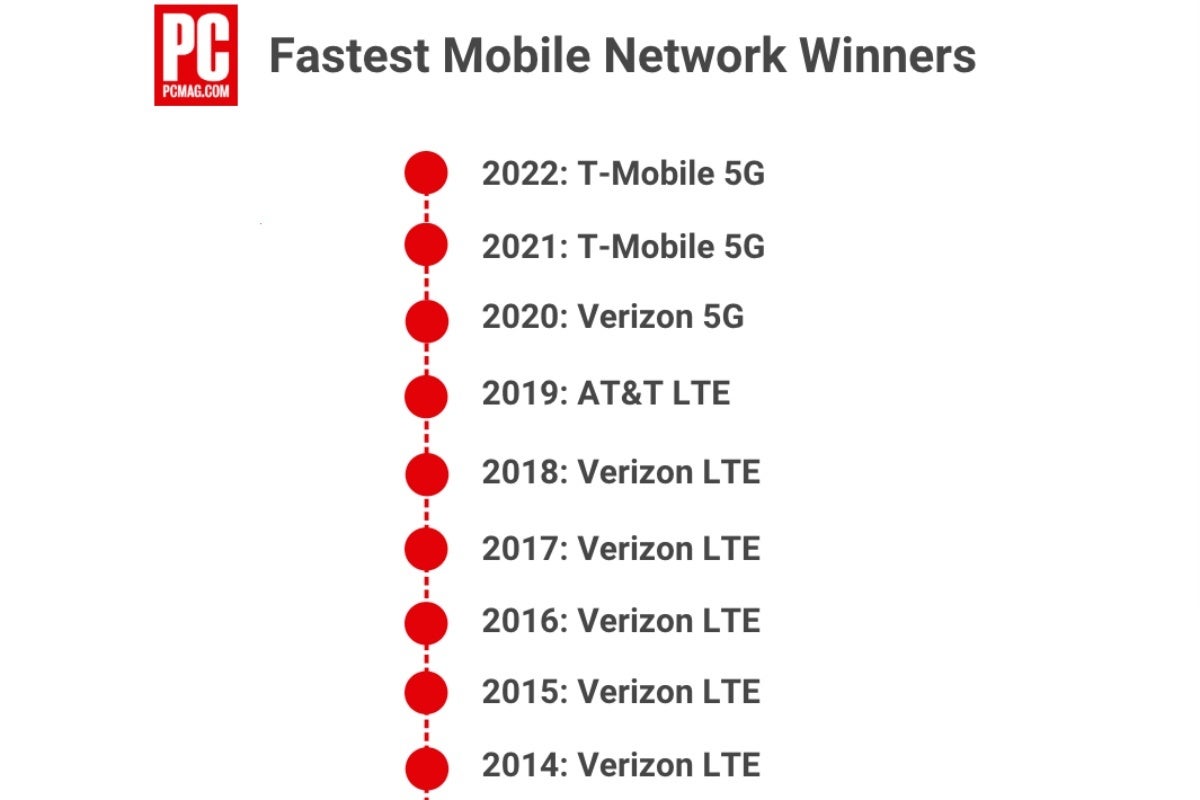By driving thousands and thousands of miles across America and running speed tests in different corners of any given city (and rural area) at specific intervals of time and on a specific (ultra-high-end) phone, PCMag’s researchers might just replicate a user’s “typical” network experience better than anyone else, especially when also tracking dropped calls.
And the unsurprising winner is…
T-Mo is the absolute speed champion pretty much across the board, reigning supreme as far as top (1.33 Gbps) and average (264.4 Mbps) download numbers are concerned and in terms of average upload figures (32.9 Mbps) too.
These are not 5G-specific results either, which makes them that much more impressive, and on top of everything, the “Un-carrier” rules the latency chart as well while tying its arch-rivals in dropped calls, and somewhat disappointingly, sitting in last place as far as failed data connections are concerned.
It’s not all bleak for Verizon and AT&T

AT&T also prevailed in three of the six rural battles included in this report from an overall network performance perspective, while T-Mobile actually had to settle for a lone such regional win, reminding us of Magenta’s major historical weakness. Then again, the “Un-carrier” is apparently making great progress on that front too, especially in the Northeast, while continuing to struggle in the Northwest and Georgia.

